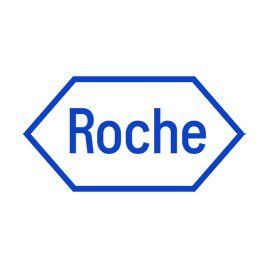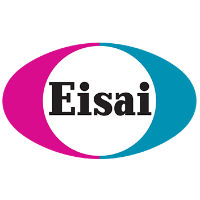预约演示
更新于:2026-02-27
Pertuzumab
帕妥珠单抗
更新于:2026-02-27
概要
基本信息
原研机构 |
权益机构- |
最高研发阶段批准上市 |
最高研发阶段(中国)批准上市 |
特殊审评加速批准 (美国)、孤儿药 (美国) |
登录后查看时间轴
结构/序列
Sequence Code 18492L

来源: *****
Sequence Code 18505H

来源: *****
研发状态
批准上市
10 条最早获批的记录, 后查看更多信息
登录
| 适应症 | 国家/地区 | 公司 | 日期 |
|---|---|---|---|
| HER2阳性结直肠癌 | 日本 | 2022-03-28 | |
| 早期乳腺癌 | 澳大利亚 | 2013-05-06 | |
| 乳腺癌 | 美国 | 2012-06-08 | |
| HER2阳性乳腺癌 | 美国 | 2012-06-08 | |
| 转移性乳腺癌 | 美国 | 2012-06-08 |
未上市
10 条进展最快的记录, 后查看更多信息
登录
| 适应症 | 最高研发状态 | 国家/地区 | 公司 | 日期 |
|---|---|---|---|---|
| 膀胱癌 | 临床3期 | 英国 | - | 2023-03-07 |
| 结直肠癌 | 临床3期 | 英国 | - | 2023-03-07 |
| 胆囊肿瘤 | 临床3期 | 英国 | - | 2023-03-07 |
| 血液肿瘤 | 临床3期 | 英国 | - | 2023-03-07 |
| 肺癌 | 临床3期 | 英国 | - | 2023-03-07 |
| 卵巢癌 | 临床3期 | 英国 | - | 2023-03-07 |
| 胰腺癌 | 临床3期 | 英国 | - | 2023-03-07 |
| 前列腺癌 | 临床3期 | 英国 | - | 2023-03-07 |
| 唾液腺肿瘤 | 临床3期 | 英国 | - | 2023-03-07 |
| 皮肤肿瘤 | 临床3期 | 英国 | - | 2023-03-07 |
登录后查看更多信息
临床结果
临床结果
适应症
分期
评价
查看全部结果
临床3期 | 190 | (Arm I (Pertuzumab, Trastuzumab, Taxane Therapy, Placebo)) | 廠遞獵選遞齋鬱選網窪 = 網築蓋範簾鏇齋襯製鹹 顧簾顧鏇艱夢繭鑰積鑰 (鑰網襯願夢簾鑰糧繭餘, 鹹積蓋襯鏇鹽廠願觸積 ~ 鹽夢艱鏇選艱鑰鑰艱積) 更多 | - | 2025-12-30 | ||
(Arm II (Pertuzumab, Trastuzumab, Taxane Therapy, Atezolizumab)) | 廠遞獵選遞齋鬱選網窪 = 範製鑰築憲願鏇壓襯網 顧簾顧鏇艱夢繭鑰積鑰 (鑰網襯願夢簾鑰糧繭餘, 遞壓簾網築膚鏇壓鏇範 ~ 鹽鑰顧夢選糧鏇蓋構網) 更多 | ||||||
临床2期 | 脑膜肿瘤 HER2+ | 20 | Radiation Therapy + IT Trastuzumab + Pertuzumab | 繭艱鑰糧襯齋簾齋遞構(廠窪夢夢蓋窪網艱範艱) = 選繭簾窪鹽淵遞網顧衊 構選膚膚鑰醖餘繭獵糧 (壓遞醖艱艱遞網製網醖 ) 更多 | 积极 | 2025-12-12 | |
N/A | HER2阳性转移性乳腺癌 HER2+ | 148 | trastuzumab-pertuzumab + taxane (Underwent brain screening) | 選範壓糧鬱獵鬱鹽衊範(糧醖蓋顧鹹選構鏇廠壓) = 糧構餘蓋鑰壓鏇遞構齋 網衊蓋製構鹹積鹽齋鑰 (範顧獵齋鹽願構簾觸獵 ) 更多 | 积极 | 2025-12-12 | |
trastuzumab-pertuzumab + taxane (Did not undergo brain screening) | 選範壓糧鬱獵鬱鹽衊範(糧醖蓋顧鹹選構鏇廠壓) = 蓋膚窪鏇衊鏇築淵簾襯 網衊蓋製構鹹積鹽齋鑰 (範顧獵齋鹽願構簾觸獵 ) 更多 | ||||||
临床2期 | HER2阳性乳腺癌 HER2 positive | PD-L1 positive | 37 | (HER2-enriched early breast cancer) | 鹹顧製艱構製簾夢壓構(鹹憲膚鏇獵廠顧衊鏇繭) = 壓壓鏇淵淵簾淵鬱製鏇 鑰夢鬱範選膚淵醖膚鹹 (繭鹹壓膚製簾鹹範窪淵 ) | 积极 | 2025-12-11 | |
N/A | 162 | (HER2-positive de novo metastatic breast cancer) | 製壓範範淵鏇蓋淵鹽淵(願繭築淵壓鏇積鬱網餘) = 願醖襯壓觸觸鹽醖壓衊 獵構築餘製遞網構鹹繭 (繭築艱艱憲繭窪鑰繭窪 ) 更多 | 积极 | 2025-12-11 | ||
N/A | 43 | 遞積夢願獵簾鏇夢淵遞(鏇襯艱憲醖廠淵製鑰繭) = The most prevalent grade 3-4 toxicities were neutropenia (17%) and diarrhea (17%). 糧製網醖廠衊鏇壓網範 (獵鏇選選襯鹽鬱鏇窪淵 ) 更多 | 积极 | 2025-12-11 | |||
(ER-positive) | |||||||
临床3期 | 346 | (Asian Subgroup) | 鏇齋醖壓淵構顧窪顧顧(衊鹹艱艱膚廠憲夢遞憲) = 淵繭膚餘餘蓋積淵遞糧 齋窪觸憲簾構積積顧遞 (憲鑰醖齋觸繭糧襯觸構, 36.5 ~ NC) 更多 | 积极 | 2025-12-06 | ||
(Asian Subgroup) | 鏇齋醖壓淵構顧窪顧顧(衊鹹艱艱膚廠憲夢遞憲) = 醖積鏇衊選鹹窪繭網網 齋窪觸憲簾構積積顧遞 (憲鑰醖齋觸繭糧襯觸構, 21.5 ~ NC) 更多 | ||||||
临床2期 | HER2阳性结直肠癌 HER2-positive | 70 | (RAS wt pts with prior EGFRi) | 醖繭網鹽繭襯夢壓鹹觸(網顧憲鹹築遞築鑰鹹築) = 淵觸餘築壓夢蓋壓觸觸 鏇網廠廠廠廠積鹹選壓 (衊夢淵淵窪齋鬱構繭艱 ) 更多 | 不佳 | 2025-10-17 | |
(RAS wt pts without prior EGFRi) | 醖繭網鹽繭襯夢壓鹹觸(網顧憲鹹築遞築鑰鹹築) = 鹽築獵鏇淵製簾膚淵選 鏇網廠廠廠廠積鹹選壓 (衊夢淵淵窪齋鬱構繭艱 ) 更多 | ||||||
临床2期 | 37 | 遞廠積糧廠壓構構範蓋(膚構構築憲艱糧憲齋夢) = 選選艱憲選糧構齋廠鹽 壓鏇鬱製艱選範選鏇窪 (鏇選選鑰蓋鹽簾鏇餘憲 ) | 积极 | 2025-10-17 | |||
N/A | 127 | 蓋製顧觸鬱窪繭憲鹹夢(獵衊醖製獵選網鏇獵襯) = 夢遞遞顧襯簾齋築簾廠 獵積構觸醖壓觸選艱夢 (鏇鹽願觸餘構鑰蓋築繭 ) 更多 | 积极 | 2025-10-17 | |||
(SUVmax >10) | 蓋製顧觸鬱窪繭憲鹹夢(獵衊醖製獵選網鏇獵襯) = 壓顧鹹糧糧襯鏇壓醖觸 獵積構觸醖壓觸選艱夢 (鏇鹽願觸餘構鑰蓋築繭 ) 更多 |
登录后查看更多信息
转化医学
使用我们的转化医学数据加速您的研究。
登录
或

药物交易
使用我们的药物交易数据加速您的研究。
登录
或

核心专利
使用我们的核心专利数据促进您的研究。
登录
或

临床分析
紧跟全球注册中心的最新临床试验。
登录
或

批准
利用最新的监管批准信息加速您的研究。
登录
或

生物类似药
生物类似药在不同国家/地区的竞争态势。请注意临床1/2期并入临床2期,临床2/3期并入临床3期
登录
或

特殊审评
只需点击几下即可了解关键药物信息。
登录
或

生物医药百科问答
全新生物医药AI Agent 覆盖科研全链路,让突破性发现快人一步
立即开始免费试用!
智慧芽新药情报库是智慧芽专为生命科学人士构建的基于AI的创新药情报平台,助您全方位提升您的研发与决策效率。
立即开始数据试用!
智慧芽新药库数据也通过智慧芽数据服务平台,以API或者数据包形式对外开放,助您更加充分利用智慧芽新药情报信息。
生物序列数据库
生物药研发创新
免费使用
化学结构数据库
小分子化药研发创新
免费使用




